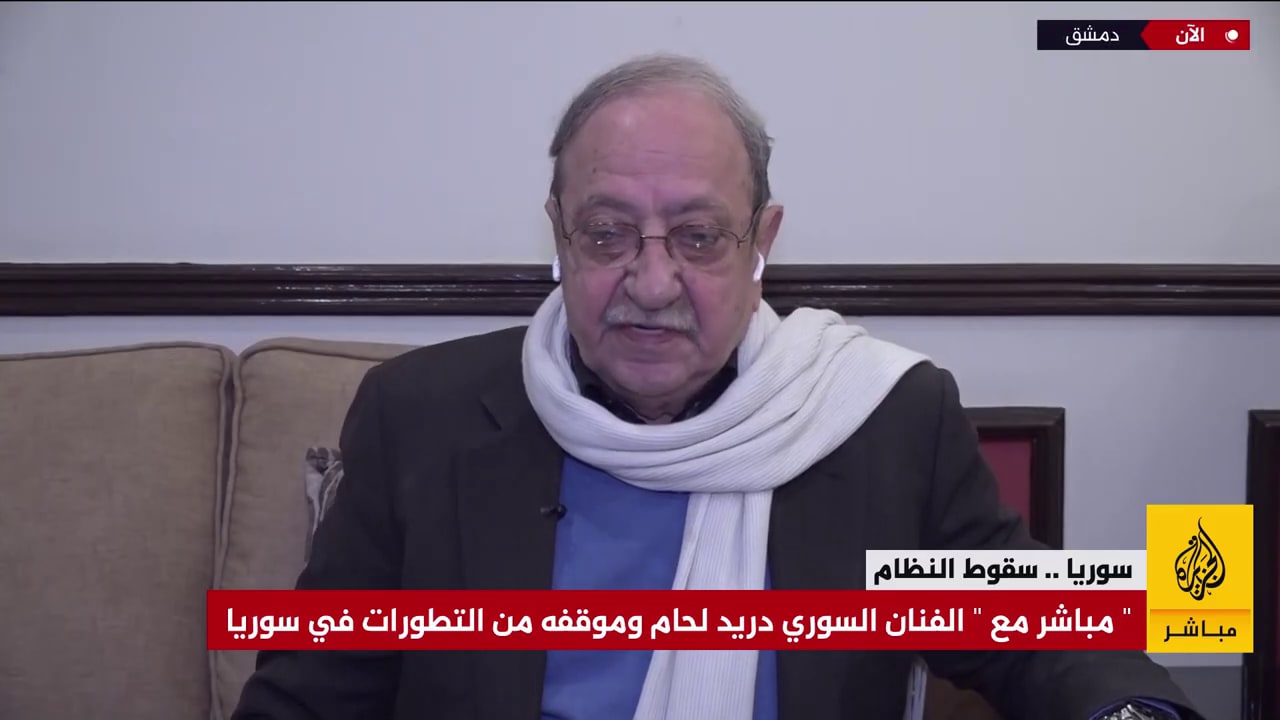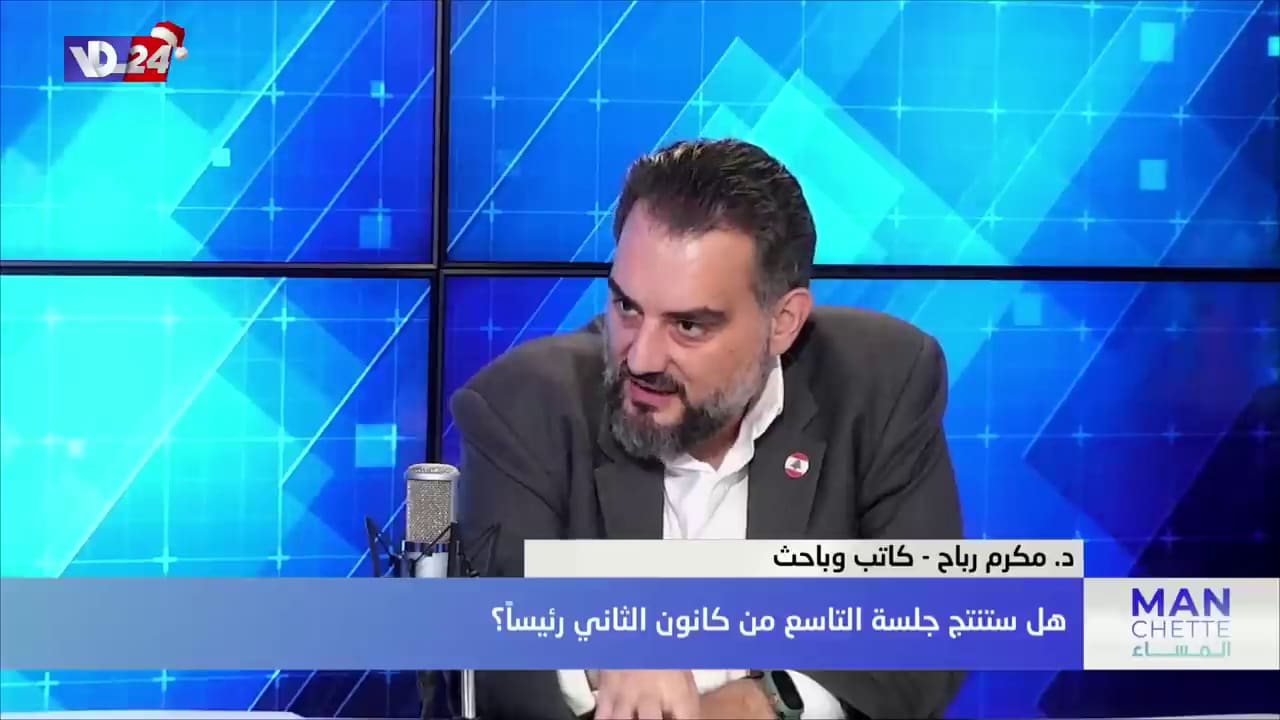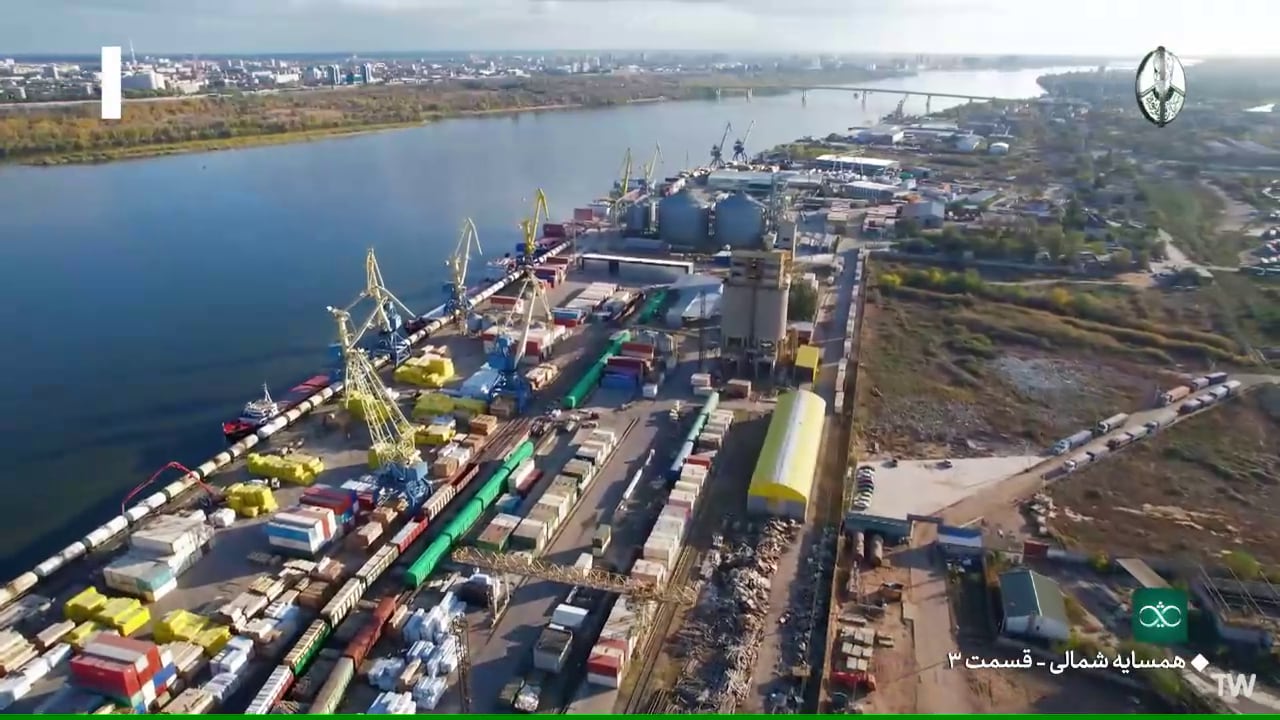
Lebanese MP Okab Sakr criticized what he called the "Iranian expansionist plan in Shiite clothing" and said that there are two Irans – the "Iran of the IRGC" and the "reformist Iran," and that it was inevitable that the two would clash. He said that Obama had been "a catastrophe" for the region because of his "indecision" and that this had weakened the FSA. He also said that Trump functions better than Obama, without even 10% of his opportunities. Asked about his childhood, growing up in the same neighborhood as Hassan Nasrallah’s family, Sakr recounted that Nasrallah was an "abnormal phenomenon" in the neighborhood and said that later, when he became military commander of Hizbullah, he shelled a building where three of his brothers, members of the Amal movement, had been pinned down. He was "merciless even toward his brothers," and "proud of it." The interview aired on Rotana Khalijiyya TV on May 19.
Okab Sakr: "There is an Iranian expansionist ideology, which they conceal with Shiite faith, the concept of the Mahdi, and other notions, which, I believe, have nothing whatsoever to do with authentic Shiite thought. This is an Iranian expansionist plan in Shiite clothing, which enables the Iranians to toy with the natural disposition of the Shiite Arabs, and to connect to Shiite ideology, which they use to penetrate the heart of the Arab world.
[…]
"I believe that the true face of Iran is that of the reformists, not of the IRGC. The IRGC controls Iran just like Bashar Al-Assad and his militias control Syria, like Saddam Hussein used to control Iraq, and like the Houthis control Yemen – with an iron fist.
[…]
"If a young Iranian who speaks Arabic were to listen to the interview with [Saudi Crown Prince] Mohammad bin Salman, I am certain that after the first part of that 45-minute interview, he would say: 'That is what I want.' He would hear him talking about investing in the future of the Saudis, about securing financial sources for them, and about incentives for investments in industry and technology. I believe that any young Iranian, Lebanese, and Shiite would want such modernization. They would think that that young Saudi [prince] represents their aspirations more than the IRGC commander who tells them, on a daily basis, that he plans to occupy the region, to bomb, to spend money on this colony or that colony, to take all their assets and to pour them into Palestine, Lebanon, or Yemen. All the while, the Iranians, like [the Saudi Crown Prince] said, suffer hunger. In Iran, there are 15 million poor people, and millions – an army – of unemployed people. They suffer from economic catastrophes, even though their country is richer than Turkey and most Arab countries. Their average wage is less than in a country like Cyprus. In this it is more like an African country.
[…]
"There are two Irans. There is the Iran of the IRGC, which wants to turn the Iranians and the Arab Shiites into shields, and into guns pointed at the entire region, and there is the reformist Iran, which wants to live like the rest of the world. They want internet. They don’t want to hide their satellite dishes with the laundry..."
Interviewer: "They want to be able to access Twitter..."
Okab Sakr: "Yes, they want to access Twitter in a normal manner. Only their president is on Twitter. The entire nation cannot access it. The Iranian president is the only one on Twitter, and he is followed from abroad. The Iranians cannot follow him. I don’t think that the Iranians are not a part of this planet. But I believe that a dictatorial regime is blocking them from their environment and from the modern age."
Interviewer: "Is it possible that these two Irans will clash?"
Okab Sakr: "I believe that this is inevitable."
[…]
Interviewer: "What did Obama do to Syria and the Syrians?"
Okab Sakr: "In a nutshell, he was a catastrophe. That president was a catastrophe. I was pessimistic from the day he was elected.
[…]
"He was catastrophic because he is a hesitant person. The president of the leading superpower in the world cannot be anything but resolute. In such a case, whether his decisions suit you or not, you would respect him, and say: That is the President of the United States. But when he is indecisive – even if this indecision serves you – you would say: That person is not worthy of being U.S. President. It is tough when you have an indecisive man at a time when the world needs decision-making more than ever. At a time of tectonic changes, he could not make a decision. He transformed Russia from a paper tiger into a country more powerful than the U.S.S.R. He also transformed a gang leader like Bashar Al-Assad into a regional lion. It was Obama's indecisiveness that has brought the entire region, even Egypt... His indecisiveness caused all that confusion in Egypt. His indecision was not, like some people think, because he did not want the U.S. to regain its imperialistic role in the region. He was hesitant in all his decisions, home and abroad.
[…]
"Obama missed all the best opportunities. Trump does not have even 10% of the opportunities Obama had, but with those 10%, he functions much better, even if only symbolically, than Obama. With 5-10% of his opportunities, he functions better than Obama did with 100%, who lost it all with his indecisiveness, with his recklessness, and with his total lack of experience in dealing with international problems, especially in the Middle East."
[…]
Interviewer: "What are the reasons for the weakening of the Free Syrian Army [FSA], and the rise of the Islamic factions, and can the FSA be resurrected?"
Okab Sakr: "First of all, there was the Obama problem. The FSA did not receive support, and it was not organized in a way that would enable it to protect the people and to prevent radicalization. The FSA had to defend itself against Al-Assad's army and prevent radicalization. The FSA was militarily weak, its doctrine was not solid, and it lacked the capabilities to confront Al-Assad. Along came the Islamists, with their special financial support and their suicidal doctrine, and they offered an alternative, and the U.S. administration remained silent, watching from the sidelines."
[…]
Interviewer: "[Saudi FM] Adel Al-Jubeir declared – in Moscow, of all places – that there is no future in Syria for Bashar Al-Assad, or for Iran and its militias, headed by Hizbullah. What does this mean? Is this possible?"
Okab Sakr: "I don’t believe that there is a single lunatic on this planet who still believes that in 2017, a president can remain in office, after having killed over half a million of his own people. What lunatic would say the opposite of what Adel Al-Jubeir said?
[...]
"It is the nature of things that Al-Assad and Iran cannot remain in Syria. Sadly, Iran and Al-Assad will make Syria and the region pay a steep price, before they realize what is self-evident."
Interviewer: "This is my last question. As a child, you were a neighbor of Hizbullah Secretary-General Hassan Nasrallah. What was it like?"
Okab Sakr: "The truth is that we were neighbors of his family. He himself was abroad. He went to study in Iraq and I think later in Iran. He would come to visit his family, whose house was across from ours. He was a young sayyed at the time. We were living in a Shiite region."
Interviewer: "That was in Chiyah."
Okab Sakr: "Yes, it was a purely Shiite area. But it was a very open area.
[…]
"We did not have any sheikhs, and when people would see Sayyed [Nasrallah] – some kids would follow him and scream, because they had never seen a sheikh before. Some people even called him Santa Claus. He was a strange sight in the neighborhood, because there was no other sheikh. There used to be an old sheikh who died, and [Nasrallah] was a young sheikh... All the neighborhood kids would follow him because he was an abnormal phenomenon. Then he disappeared, and his name resurfaced when he became a military commander of Hizbullah. The first time I heard his name again was when he was a Hizbullah military commander, and he was shelling us in Chiyah. He gave us some intense shelling.
[…]
"There was an incident that he himself talked about, which shows you what kind of person Hassan Nasrallah is. In that same battle, when he was military commander of Hizbullah in the Dahiyeh, his brother Hussein Nasrallah a.k.a. Jihad Al-Husseini, was a military commander of the Amal movement. Once, Jihad Al-Husseini and two other brothers, Muhammad and Jaafar, were surrounded in a building by Hizbullah. Hassan Nasrallah was in charge, because he was the Hizbullah military commander. Nabih Berri called the Iranian embassy, and said that he would like to deliver a message to Sayyed Nasrallah that his three brothers were pinned in that building. The message reached Hassan Nasrallah and his decision was to bring the building down. They destroyed the building, and his brother, Jihad Hussein Nasrallah, was wounded, and the two other brothers, Muhammad and Jaafar, were captured, and they were tortured to an exceptional extent because they were his brothers. He sent a message: Torture them more than usual because they are my brothers. Hassan Nasrallah himself tells this story and says that it reflects his character. You can sit with him, and he is very friendly with a great sense of humor, but he is very stern and vicious. He is as fundamentalist as they come. He is merciless even toward his brothers, and he is proud of it."
Interviewer: "What is your message to your old neighbor?"
Okab Sakr: "My message is as follows: Sayyed Nasrallah, you lived in a time of Shiite disenfranchisement. You know that this oppression and disenfranchisement gave birth to explosion. You know that our sense of being oppressed by the ‘political Maronism,’ and of being targeted by Israel and America, has led the Shiites to explosion. Part of this was justified. Why can’t you see that today, you and Iran are participating in the oppression of other people? How come the oppressed has become an oppressor so easily? Where are you going? Remember history, because history shows no mercy."













